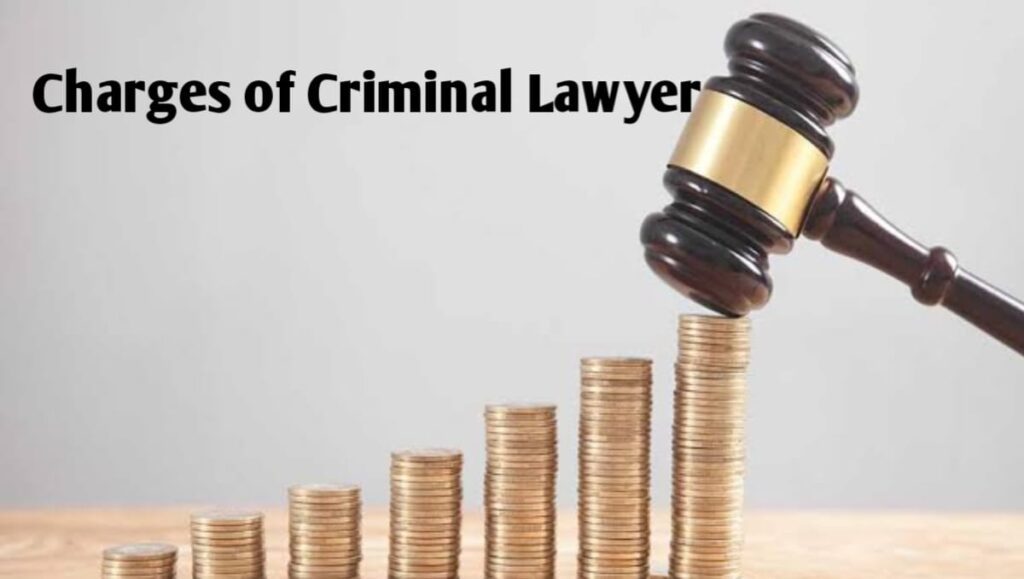How Much Do Criminal Lawyers Charge in Arizona?
When facing criminal charges, hiring a skilled lawyer is crucial to ensuring the best possible outcome. However, one of the first concerns many individuals have is the cost of hiring a criminal lawyer in Arizona. Legal fees can vary significantly depending on the type of case, the lawyer’s experience, and the complexity of the legal issues involved. Below is an overview of how much criminal lawyers charge in Arizona and the factors that influence their fees.
1. Hourly Rates
Most criminal defense lawyers in Arizona charge an hourly rate for their services. Hourly rates can vary widely, typically ranging from $150 to $500 per hour, depending on the lawyer’s experience, reputation, and the nature of the case. More experienced attorneys or those with specialized expertise in certain types of criminal cases (such as drug offenses, DUI, or violent crimes) may charge higher hourly rates.
The total cost for your case will depend on how much time the lawyer needs to spend on it. For example, complex cases with multiple hearings, investigations, or expert witnesses will result in higher fees due to the increased amount of time and effort required.
2. Flat Fees
For certain types of criminal cases, especially more straightforward matters like misdemeanors or routine DUI cases, lawyers may offer a flat fee. A flat fee means that you pay a set amount for the lawyer’s services, regardless of how much time the case takes. This is often the case for relatively simple legal issues where the lawyer’s involvement is clear from the outset.
For example, for a typical DUI charge, a lawyer may offer a flat fee that ranges from $1,000 to $5,000, depending on the circumstances. Flat fees provide the advantage of predictability, as you know the total cost upfront. However, it’s important to clarify with your lawyer what is included in the flat fee, as certain services, such as appeals or additional hearings, may incur extra charges.
3. Retainers
In many criminal cases, lawyers require clients to pay a retainer before they begin work. A retainer is an upfront payment that acts as a deposit on future legal services. The lawyer will then bill against the retainer as work is completed. For criminal defense lawyers, retainers typically range from $2,500 to $10,000, depending on the complexity of the case.
Once the retainer is exhausted, the client may need to replenish the retainer or pay additional fees if the case requires more time than initially anticipated. This fee structure is commonly used for cases that are expected to last several months or involve multiple legal proceedings.
4. Contingency Fees (Rare in Criminal Cases)
Unlike personal injury or civil cases, contingency fees (where the lawyer only gets paid if you win the case) are very rare in criminal defense cases. Criminal lawyers generally do not work on a contingency fee basis because of the inherent risks and unpredictability involved in criminal defense. Criminal cases can result in a variety of outcomes, including acquittal, plea bargains, or even conviction, which makes it difficult to structure a payment plan based on results.
5. Additional Costs and Fees
In addition to the lawyer’s hourly rate or flat fee, there are often other costs associated with a criminal defense case. These costs can include:
- Court Filing Fees: These are fees associated with filing motions, appeals, or other legal documents with the court. Filing fees vary depending on the type of case and the court.
- Expert Witness Fees: In more complex criminal cases, such as those involving forensic evidence or mental health evaluations, expert witnesses may be necessary. Expert fees can range from a few hundred to several thousand dollars.
- Investigation Costs: Some cases require private investigators to gather evidence or interview witnesses. These costs can add up depending on the amount of investigation required.
- Travel Expenses: If the lawyer or their team needs to travel for hearings, depositions, or interviews, these costs may be passed on to the client.
It’s important to discuss these additional costs with your lawyer upfront to avoid surprises later.
6. Factors Affecting the Cost of Criminal Defense in Arizona
Several factors can influence how much a criminal lawyer will charge in Arizona, including:
- Experience and Reputation: Lawyers with more years of experience or a higher reputation may charge higher fees. A well-known lawyer who has had success in high-profile cases may demand a premium.
- Type of Crime: The complexity of the crime you’re being charged with will affect the cost. Felony charges, such as drug trafficking or homicide, typically involve more work and thus higher fees compared to misdemeanor offenses.
- Case Complexity: Cases that involve a lot of evidence, expert witnesses, or multiple charges will require more time and effort, leading to higher legal fees.
- Location: Lawyers in larger cities like Phoenix or Tucson may charge higher fees due to the higher cost of living and greater demand for legal services compared to smaller towns.
7. Negotiating Fees
When hiring a criminal lawyer in Arizona, it’s possible to negotiate fees, especially if you’re facing a less complicated case. Some lawyers may offer payment plans or discounts based on your financial situation. Don’t hesitate to ask about flexible fee arrangements or inquire whether they offer discounts for early payment or referrals.
Conclusion
The cost of hiring a criminal lawyer in Arizona varies based on several factors, including the complexity of your case, the lawyer’s experience, and the payment structure they offer. Hourly rates typically range from $150 to $500 per hour, while flat fees for straightforward cases may range from $1,000 to $5,000. Retainers are common for more complex cases, and additional costs such as expert witness fees and investigation costs can also affect the overall price.
When hiring a criminal lawyer, it’s important to understand the fee structure, what’s included, and any potential additional costs. By discussing fees upfront and selecting a lawyer who fits both your budget and your case needs, you can ensure that you are well-represented without financial surprises.



